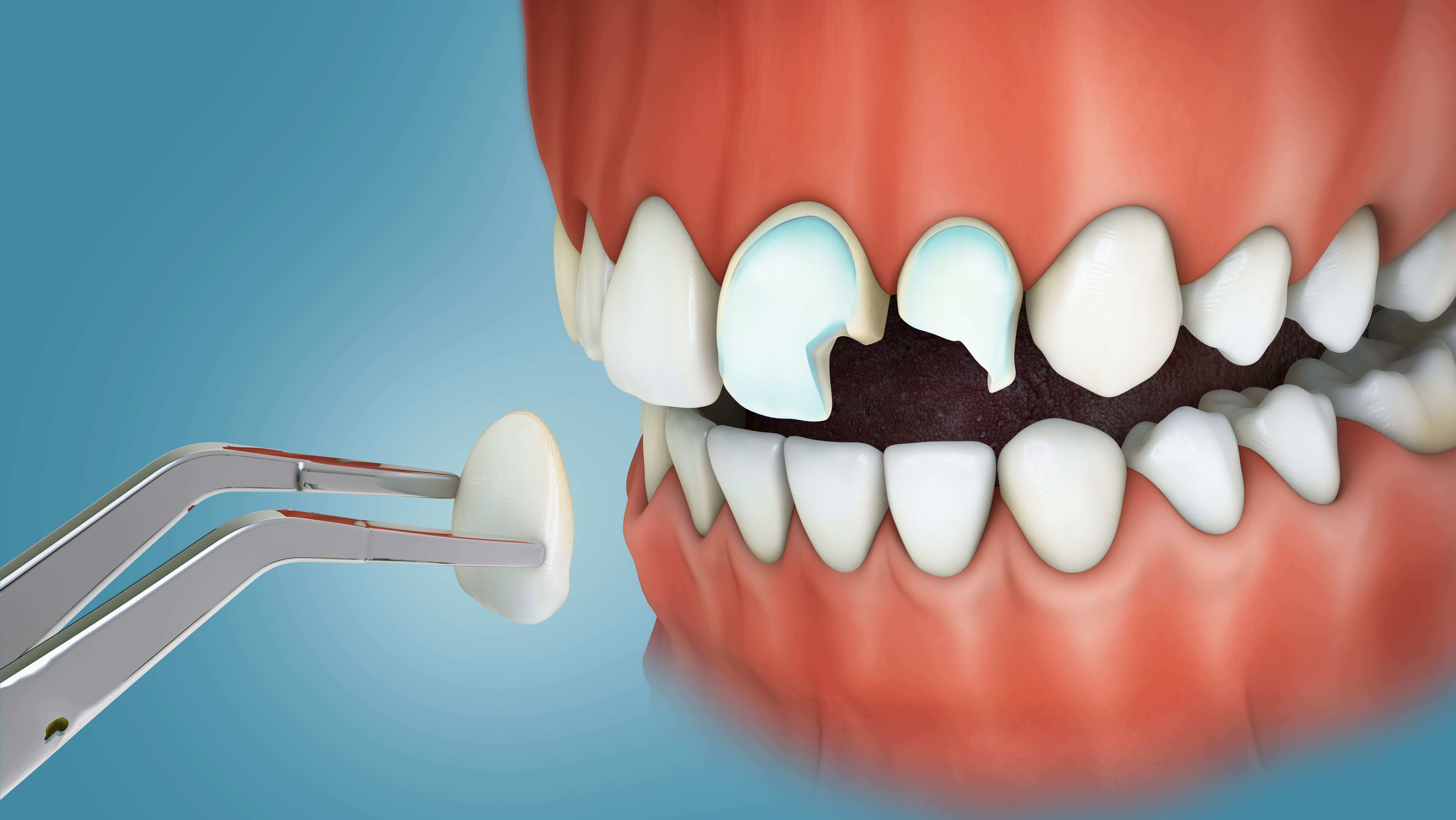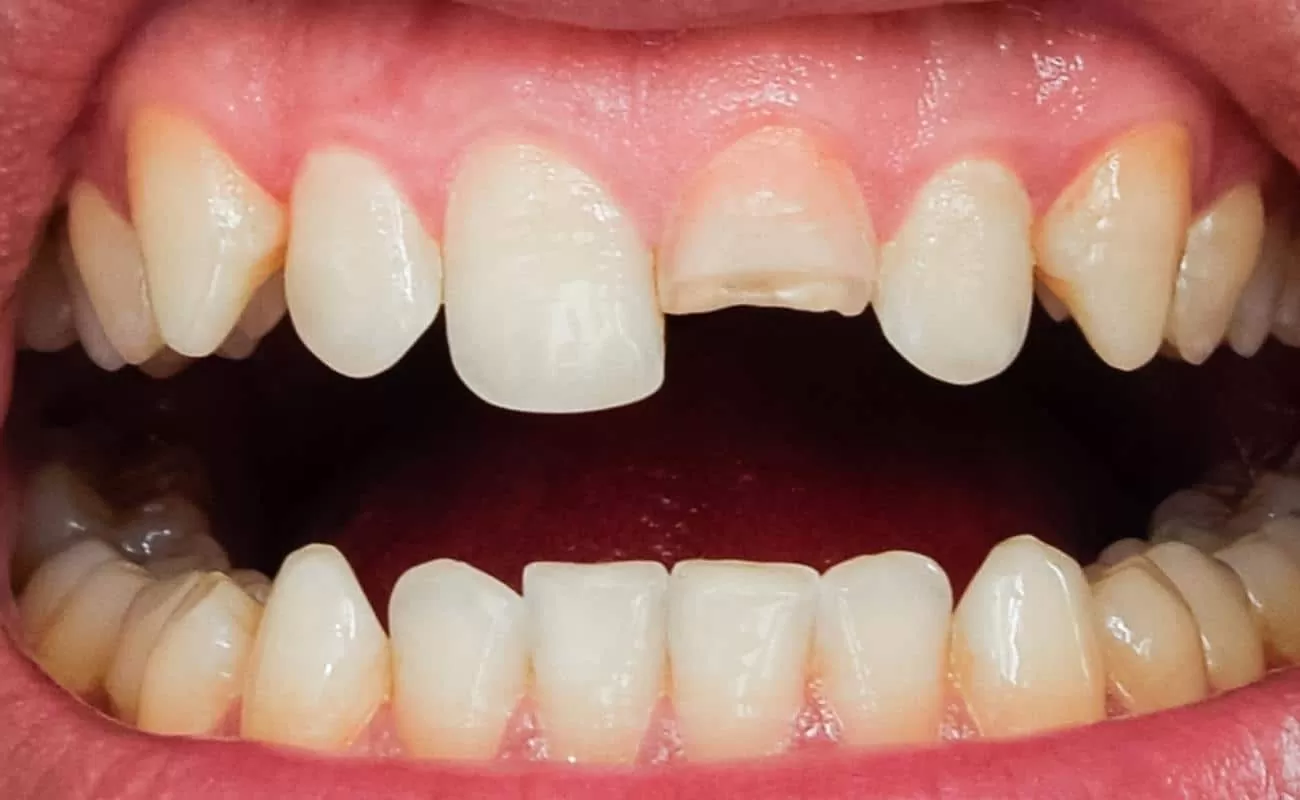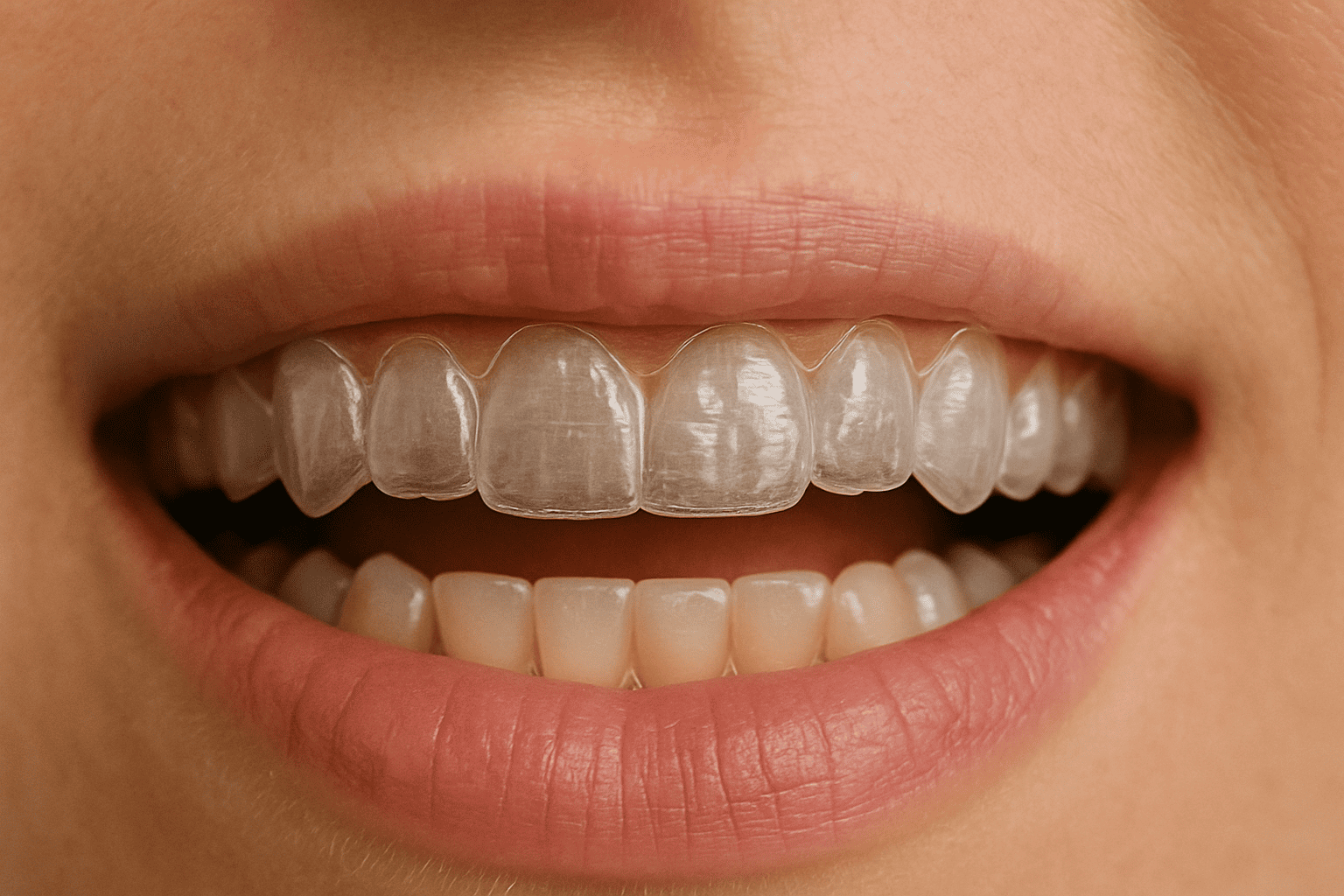How Long do Composite Veneers Last & How to Maximize it?
Want a brighter smile? We’ll dive into composite veneers, their lifespan, and tips to make them last for a stunning, budget-friendly smile transformation.

Are you dreaming of a brighter, more even smile but wondering if composite veneers are a worthwhile investment? Many people turn to this popular cosmetic dentistry option to fix discoloration, chips, or gaps in their teeth. But a common question is: how long do composite veneers last?
In this guide, we'll explore the average duration, factors influencing their longevity, and practical tips to extend their lifespan, all supported by reliable dental insights.
What Are Composite Veneers?
Composite veneers are thin layers of tooth-colored resin material applied directly to the front surface of teeth to enhance their appearance. This dental bonding technique corrects issues like staining, minor chips, or gaps, creating a natural-looking smile.
The procedure is usually completed in a single visit, making it quick and convenient. Your dentist shapes and bonds the resin to your teeth with minimal enamel removal—far less invasive than porcelain veneers. Benefits include lower cost, easy repairability, and versatility. However, the resin is softer than porcelain, which affects its longevity and makes it more prone to staining and wear over time.
In cosmetic dentistry, composite veneers shine for their accessibility, but understanding their material limitations sets realistic expectations for durability.

How Long Do Composite Veneers Last?
The average lifespan of composite veneers is 5–7 years, based on clinical evidence and patient experiences. With excellent care, they can last up to 8–10 years or longer in some cases, though this maximum depends on individual factors.
Studies show survival rates of 85–95% in the first 1–3 years, dropping to 70–85% at 3–5 years, and 50–75% at 5–10 years, with an annual failure rate of around 4.1% over a decade. Variability comes from patient lifestyle factors, the dentist’s technique in application, and material quality.
Over time, veneers may show signs of wear: yes, they can stain or chip more easily due to the resin's porosity, but regular maintenance like professional polishing can restore their look after 5 years.
Factors Affecting the Longevity of Composite Veneers
Several elements determine how long your composite veneers will last, from daily habits to professional care.
Oral Hygiene
Brushing twice daily with a soft-bristled toothbrush and non-abrasive toothpaste, plus daily flossing, prevents plaque buildup that could weaken the bond or cause decay underneath. Poor hygiene increases the risks of discoloration and failure.
Lifestyle and Dietary Habits
Dietary habits such as frequent coffee, red wine, or smoking can accelerate staining and discoloration because composites are more porous than porcelain. Acidic foods can erode the resin, while chewing ice, nuts, or hard objects heightens chipping risks. Habits such as biting nails or using teeth as tools also shorten lifespan by causing mechanical wear.
Patient Behavior
Grinding and clenching (bruxism) significantly affects longevity, leading to chipping, cracking, or debonding. Smoking not only stains but also weakens the material over time. Age can play a role, too. Teens might experience faster wear due to active lifestyles, while adults with stable habits may see longer durations. Overall, patient lifestyle factors make a big difference; avoiding harmful behaviors can extend life substantially.
Material and Application Quality
Modern composites are more durable, but the dentist’s skill in bonding and shaping ensures better adhesion and resistance to wear. Gum health is key; receding gums or poor periodontal conditions can reduce lifespan by exposing edges to damage. Significantly, composites don't weaken natural teeth over time if properly applied; they're minimally invasive and preserve enamel.
Dental Maintenance
Regular dental check-ups every 6 months allow for adhesion checks and early repairs. Skipping these can lead to undetected issues.
Regular hygiene appointments allow for the gums to remain healthy and the ratio of pink and white to remain aesthetically appealing.
How to Extend the Life of Composite Veneers
By treating your veneers with the same diligence as natural teeth, and taking extra precautions to protect the resin material, you can significantly extend their lifespan, potentially reaching or exceeding the 8–10-year mark. Here are practical, science-backed steps to help you get the most out of your investment:
Daily Care Routine
Use a soft toothbrush and non-abrasive toothpaste to avoid scratching. Floss daily, and consider a water flosser for edges. Whitening products don't work on composites—they can damage the surface—so opt for professional air flow instead.
Dietary Tips
Limit staining foods like coffee or wine, rinse your mouth or use a straw to minimize contact, and avoid hard or sticky items to prevent chipping.
Protective Measures
Wear a night guard for bruxism to shield against grinding forces. This can make a huge difference in preventing premature wear.
Professional Maintenance
Visit your dentist routinely (as recommended by your dentist) for cleanings and inspections. Polishing should be done as needed, often annually, to combat minor staining or wear. If chipping occurs, repairs are straightforward and can be done in one visit without the need for full replacement.
Top 5 Daily Habits to Protect Your Veneers:
- Brush and floss consistently with gentle tools.
- Rinse after consuming staining drinks, and ideally use a straw when possible..
- Avoid using teeth for non-food tasks.
- Wear protective gear if you grind.
- Attend regular check-ups.

Composite Veneers vs. Porcelain Veneers
When deciding between composite and porcelain veneers, understanding their differences is crucial for choosing the best option for your smile and lifestyle. Both enhance your appearance, but they vary significantly in durability, cost, maintenance, and procedure, impacting their suitability based on your budget, aesthetic goals, and commitment to maintaining them.
Composite and porcelain veneers differ in several key ways, impacting their suitability for your needs. Here’s a clear comparison of their main differences:
Lifespan
- Composite Veneers: Last 5–7 years on average, up to 10 with excellent care.
- Porcelain Veneers: Can last approximately 15 years or more due to superior strength and stain resistance.
Maintenance
- Composite Veneers: Require more maintenance due to higher susceptibility to staining and wear.
- Porcelain Veneers: Low maintenance, highly resistant to stains and chipping.
Invasiveness
- Composite Veneers: Minimally invasive with less enamel removal, ideal for reversible options.
- Porcelain Veneers: Require more enamel removal, making them less reversible.
Repairability
- Composite Veneers: Easy and inexpensive to repair or touch up in a single visit.
- Porcelain Veneers: Harder and more expensive to repair, often requiring full replacement.
Durability
- Composite Veneers: Good for short-term solutions but prone to chipping and staining over time.
- Porcelain Veneers: Excellent for long-term use, highly resistant to wear and discoloration.
Is it worth investing in composites if they last less?
Yes, for those seeking a cost-effective or temporary solution, composites are ideal due to their lower cost and easier repairs. For long-term durability, porcelain may save money over time by requiring fewer interventions. Composites are especially suitable if you prefer an instant, budget-friendly option.
When to Consult a Dentist
Watch for warning signs like pain, loose veneers, or significant chipping; these demand immediate attention to prevent further damage. Regular 6-month check-ups are essential to monitor and maintain veneer health.
Choose a cosmetic dentist experienced in composites for the best application and advice on personalized care.
Common Questions About Composite Veneer Longevity
What happens after 5–7 years?
Veneers may show wear like staining, chipping, or loss of shine, but many remain functional with maintenance; replacement or repair is often needed then.
Can composite veneers be repaired if they chip?
Yes, repairs are simple, often in one visit, and cost less than full replacement—typically a fraction of the original price.
How do you know when composite veneers need to be replaced?
Look for visible cracks, significant discoloration, looseness, or pain; consult a dentist if these appear.
Do lifestyle changes make a big difference?
Absolutely. Cutting out habits like smoking or excessive coffee can extend life by years.
Conclusion
In summary, composite veneers offer a fantastic, minimally invasive way to boost your smile, lasting 5–7 years on average and up to 8–10 years with diligent oral hygiene practices, smart dietary habits, and professional maintenance. Factors like bruxism or poor care can shorten this, but avoiding them and comparing to longer-lasting porcelain veneers helps you decide. If you're in London and considering this option, consult your dentist for a tailored plan to ensure the best results.
Have any questions? Contact us to discuss any concerns you may have.






